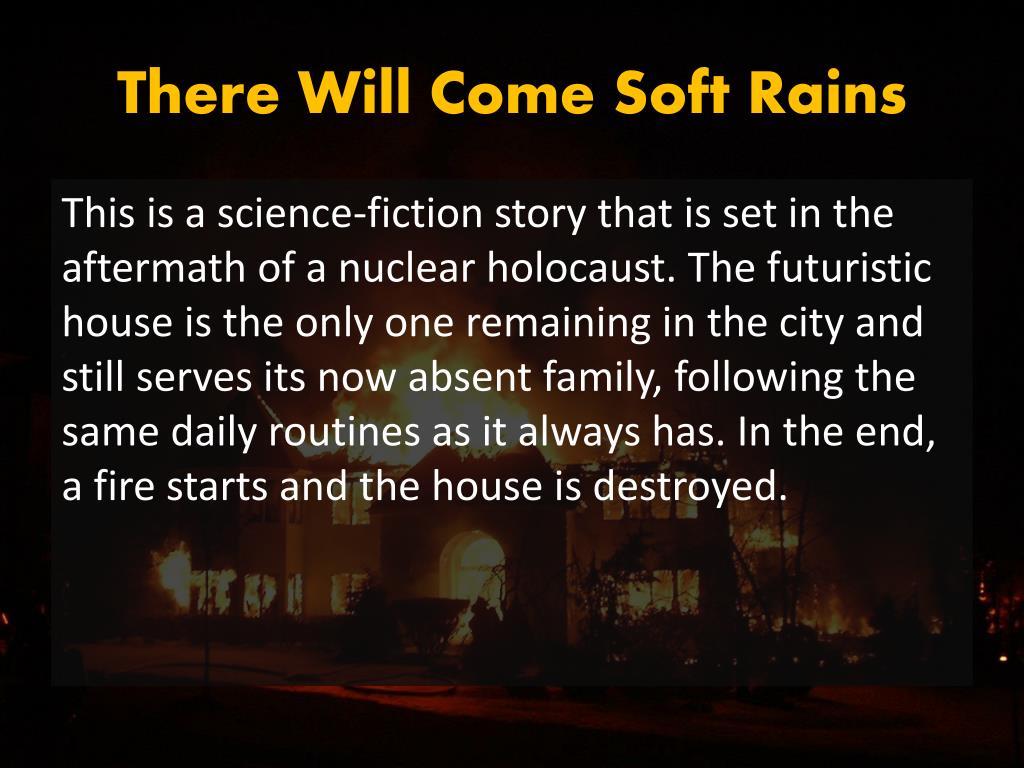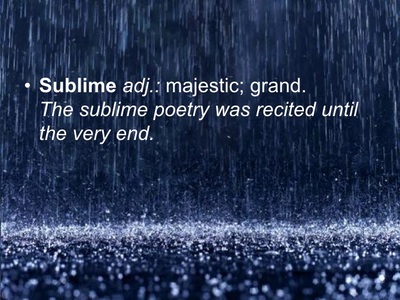

The fact that hazmat suits adorn the bedrooms, the family's work clothes also resemble radiation suits, and the window to the grandmother's room is blocked by a "Video window" showing a pristine landscape would all indicate that the environment outside might have already been wrecked when the bomb fell.


There's nobody left, machines are still going entirely on their own, and humanity is basically gone. Atomic Hate: The entire purpose of the story is to show what would happen After the End because of a nuclear war.The animation instead reserves a single screen for the grandmother. Artificial Outdoors Display: The nursery had beautiful metallic/glass animals, woven to resemble a crisp cereal meadow, where the walls picture the outdoors to distances of grass and warm endless sky.Animated Adaptation: There is a 1984 Soviet animated adaptation directed by Nazim Tulyakhodzayev that can be found here.After the End: The nuclear holocaust has already happened, but the family's smart house is still active and running as if its inhabitants were still alive.Absurdly Dedicated Worker: The entire plot of the piece is that a fully-automated house keeps performing its duties of cleaning the house, preparing meals, singing lullabies for the kids etc., even though the home has been empty for a long time and the family and everyone else has perished in a nuclear war.In particular, the poem was chosen to exemplify the fact that life (and in this case, some technology) goes on, even if humans were to suddenly vanish. The name comes from the 1920 Sara Teasdale poem about nature reclaiming the former battlefields of Europe in the years following World War I (but also about how little nature would notice if humans suddenly disappeared) a poem which is recited by the house itself midway through the story. The house runs continuously until it succumbs to decay no one will ever live in it again. As the story goes on it becomes clear that a nuclear war destroyed all of the humans. The house goes about its programmed tasks, such as making breakfast and cleaning, sustaining its own processes for days at a time. It tells about the continued goings-on of an automated house.

"There Will Come Soft Rains" is a post apocalyptic Science Fiction short story written in 1950 by Ray Bradbury.


 0 kommentar(er)
0 kommentar(er)
